
Warsaw: A City of Resilience and Modern Charm
Warsaw, the capital of Poland, is a city that embodies resilience and transformation. Its rich history is visible in every corner, from the meticulously reconstructed Old Town, a UNESCO World Heritage site, to the modern skyscrapers that define its skyline. The city was painstakingly rebuilt after World War II, and today it stands as a testament to the spirit and determination of its people. Visitors can explore a variety of cultural and historical landmarks such as the Royal Castle, the Wilanów Palace, and the POLIN Museum of the History of Polish Jews. The city also boasts a vibrant arts scene with numerous theaters, galleries, and music venues. The Warsaw Uprising Museum provides a poignant look into the city's past, offering insight into the events that shaped its current identity. For those seeking relaxation, Warsaw's numerous parks and green spaces, including Łazienki Park and Saxon Garden, offer a peaceful retreat. The Vistula River, which runs through the city, provides opportunities for leisurely walks, boat rides, and picturesque views. The city's culinary scene is equally impressive, with a mix of traditional Polish dishes and modern gastronomy that will delight any foodie.
Local tips in Warsaw
- Visit the Old Town early in the morning to avoid crowds and enjoy the serene atmosphere.
- Use public transportation, such as trams and buses, which are efficient and cover most tourist spots.
- Don't miss out on trying traditional Polish dishes like pierogi and żurek at local eateries.
- Consider purchasing a Warsaw Pass for discounts on attractions and public transport.
- Learn a few basic Polish phrases; locals appreciate the effort and it can enhance your experience.
Neighbourhoods in Warsaw
Warsaw: A City of Resilience and Modern Charm
Warsaw, the capital of Poland, is a city that embodies resilience and transformation. Its rich history is visible in every corner, from the meticulously reconstructed Old Town, a UNESCO World Heritage site, to the modern skyscrapers that define its skyline. The city was painstakingly rebuilt after World War II, and today it stands as a testament to the spirit and determination of its people. Visitors can explore a variety of cultural and historical landmarks such as the Royal Castle, the Wilanów Palace, and the POLIN Museum of the History of Polish Jews. The city also boasts a vibrant arts scene with numerous theaters, galleries, and music venues. The Warsaw Uprising Museum provides a poignant look into the city's past, offering insight into the events that shaped its current identity. For those seeking relaxation, Warsaw's numerous parks and green spaces, including Łazienki Park and Saxon Garden, offer a peaceful retreat. The Vistula River, which runs through the city, provides opportunities for leisurely walks, boat rides, and picturesque views. The city's culinary scene is equally impressive, with a mix of traditional Polish dishes and modern gastronomy that will delight any foodie.
When is the best time to go to Warsaw?
Iconic landmarks you can’t miss
Łazienki Królewskie
Discover the enchanting landscapes and rich history of Łazienki Królewskie, Warsaw's premier royal park and museum, perfect for leisurely strolls and cultural immersion.
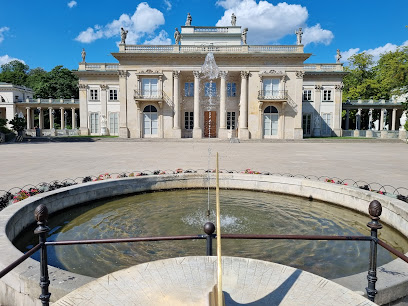
Palace of Culture and Science
Discover the Palace of Culture and Science: Warsaw's historical treasure blending culture and panoramic views in a single stunning location.

The Royal Castle in Warsaw
Explore the Royal Castle in Warsaw: a stunning UNESCO World Heritage site showcasing Poland's rich history and magnificent art collections.
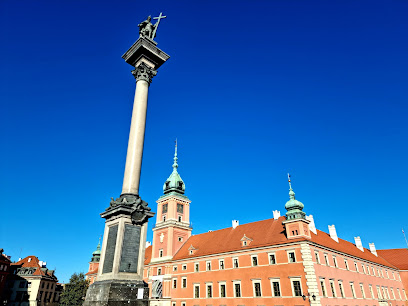
Palace on the Isle
Explore the majestic Palace on the Isle in Warsaw, a museum that beautifully blends royal history with stunning natural landscapes.
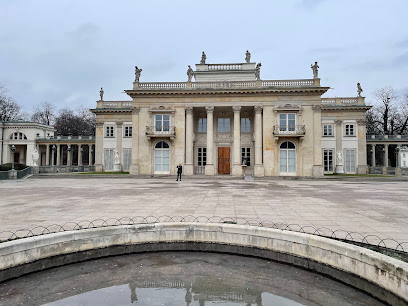
Observation deck
Experience breathtaking panoramic views of Warsaw from the iconic Observation Deck, a must-visit attraction for every traveler.
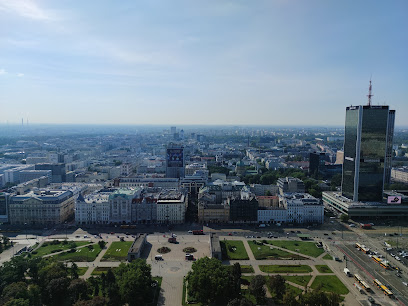
Frédéric Chopin Monument
Discover the Frédéric Chopin Monument in Łazienki Królewskie, a cultural landmark celebrating Poland's musical genius amidst serene gardens and vibrant concerts.
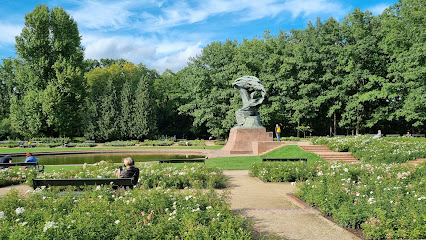
Warsaw Barbican
Discover the historical Warsaw Barbican, a stunning gateway to the Old Town and a symbol of the city's rich architectural heritage.
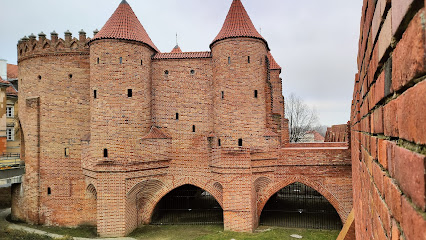
Tomb of the Unknown Soldier
Experience the solemn beauty of the Tomb of the Unknown Soldier, a poignant tribute to Poland's heroes in the heart of Warsaw.
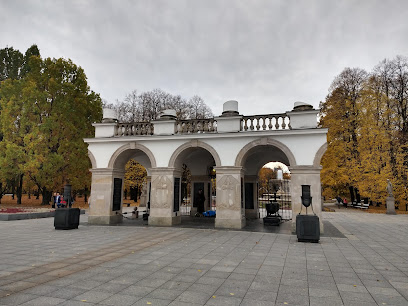
Nicolaus Copernicus Monument
Explore the Nicolaus Copernicus Monument in Warsaw, a historical landmark celebrating the father of modern astronomy amidst beautiful gardens.
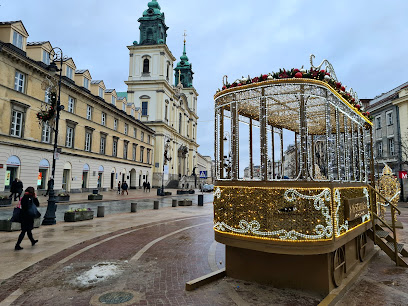
Warsaw Uprising Monument
Experience the strength and bravery of the Polish spirit at the Warsaw Uprising Monument, a key historical site in Poland's capital.
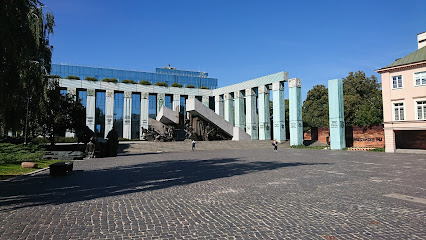
Museum of Warsaw
Explore Warsaw's captivating history at the Museum of Warsaw, where the city's vibrant past comes to life through fascinating exhibits.
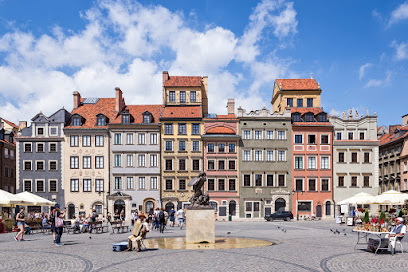
Castle Square, Warsaw
Explore the historical charm of Castle Square, a vibrant hub of culture and history in the heart of Warsaw, Poland.
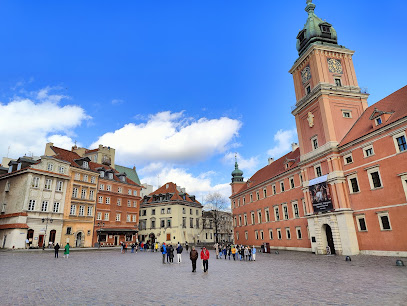
The Tin-Roofed Palace
Explore the Tin-Roofed Palace, a stunning historical landmark in Warsaw, surrounded by lush gardens and rich cultural heritage for an unforgettable visit.
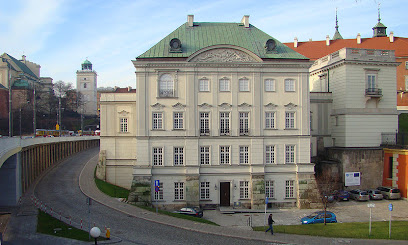
Royal Route
Explore the Royal Route in Warsaw: A historical journey through Poland's royal past, lush parks, and vibrant culture awaits you.
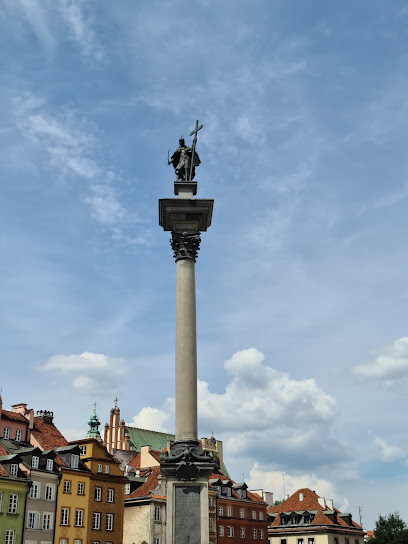
Monument to the Heroes of Warsaw
Explore the Monument to the Heroes of Warsaw, a powerful tribute to bravery and resilience in the heart of Poland's capital.
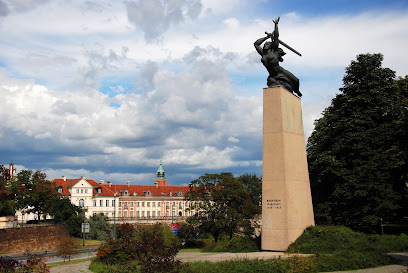
Unmissable attractions to see
Palace of Culture and Science
Discover the majestic Palace of Culture and Science, a cultural gem in Warsaw offering stunning views, rich history, and diverse events.

PGE Narodowy
Discover the vibrant spirit of Warsaw at PGE Narodowy, the national stadium, where sports, culture, and impressive architecture unite.
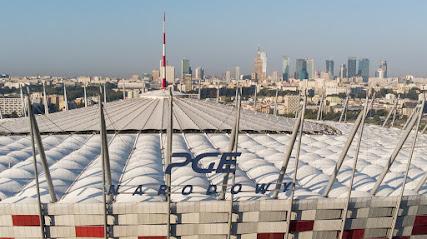
Centrum Nauki Kopernik
Unleash your curiosity at the Copernicus Science Centre, an interactive hub of science and discovery in the heart of Warsaw.

The Royal Castle in Warsaw
Explore the rich history and stunning architecture of The Royal Castle in Warsaw, a UNESCO World Heritage site and a must-see for every traveler.
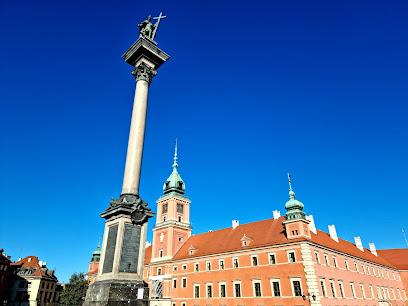
City Zoological Garden in Warsaw
Explore a world of wildlife at the City Zoological Garden in Warsaw, where education and fun blend in lush, natural surroundings.
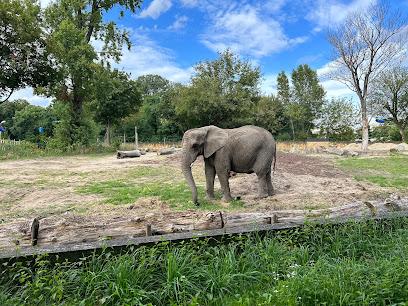
Multimedialny Park Fontann
Experience the magic of the Multimedia Fountain Park in Warsaw, where water, light, and sound come together for an unforgettable show.
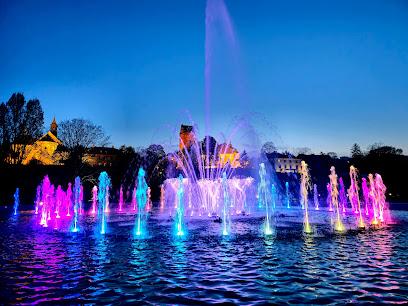
Muzeum Powstania Warszawskiego
Explore the poignant history of Warsaw's Uprising at Muzeum Powstania Warszawskiego, a must-see attraction that captures the city's spirit and resilience.
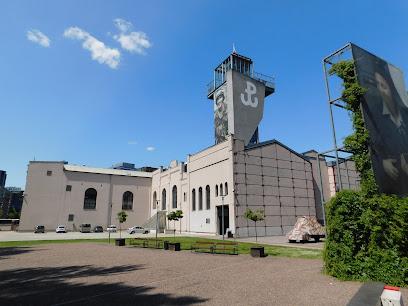
Museum of King Jan III's Palace at Wilanów
Experience the regal charm of the Museum of King Jan III's Palace at Wilanów in Warsaw, Poland's magnificent royal residence and cultural landmark.
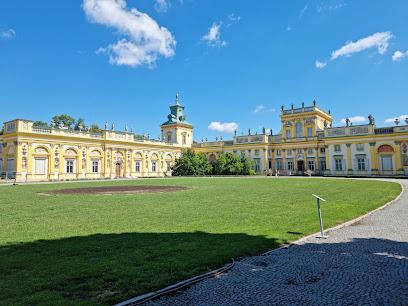
Saxon Garden
Experience the serene beauty and rich history of Saxon Garden in the heart of Warsaw, a perfect escape for nature lovers and history enthusiasts alike.
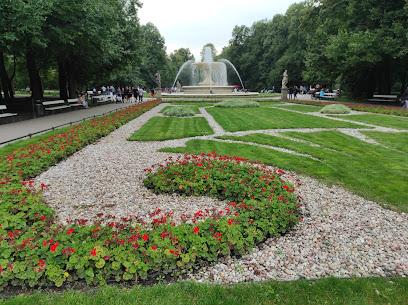
Muzeum Narodowe w Warszawie
Explore the National Museum in Warsaw, a cultural landmark showcasing a vast collection of art and history in Poland's vibrant capital.
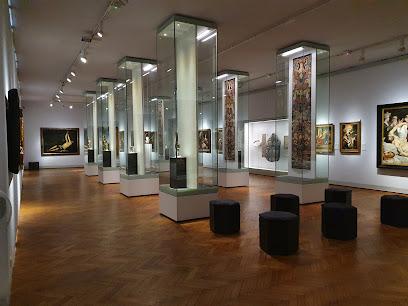
Lazienki Palace
Explore the majestic Lazienki Palace in Warsaw, a sublime blend of history, architecture, and nature set amidst stunning gardens.
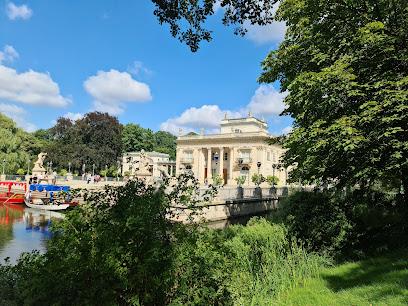
POLIN Museum of the History of Polish Jews
Explore the POLIN Museum in Warsaw, where Jewish history and culture come to life through engaging exhibits and inspiring narratives.
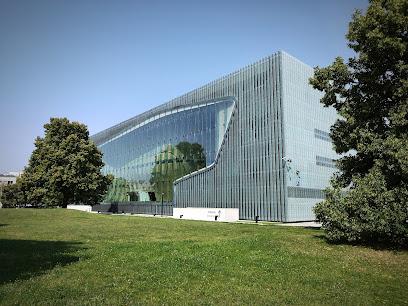
Stadion Miejski Legii Warszawa im. Marszałka J. Piłsudskiego
Experience the thrill of Polish football at Stadion Miejski Legii Warszawa, a must-visit for sports fans and tourists alike in the heart of Warsaw.
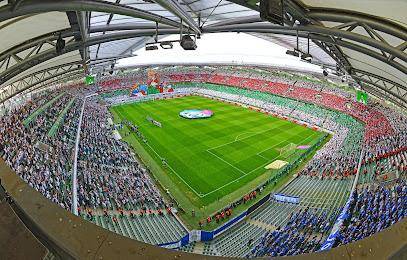
Fabryka Norblina
Explore Fabryka Norblina in Warsaw, where shopping, dining, and cultural experiences blend in a vibrant and historic setting.
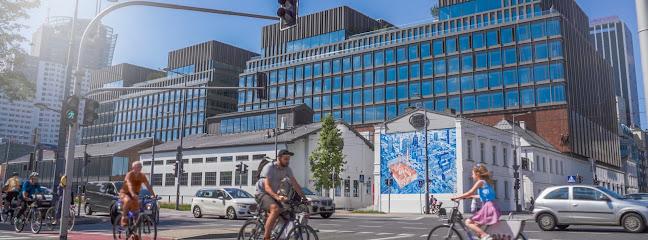
Vistula Boulevards
Explore the beautiful Vistula Boulevards in Warsaw, where nature, culture, and stunning river views await every visitor.
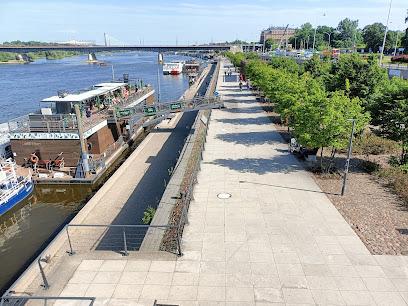
Essential places to dine
U Szwejka
Discover U Szwejka in Warsaw: A gastronomic gem blending Czech, German, Polish & seafood delights in an inviting atmosphere.
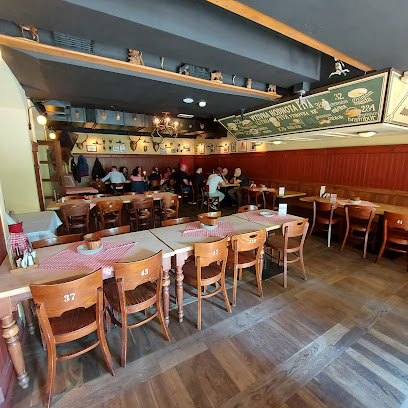
Gościniec
Discover the heart of Polish cuisine at Gościniec in Warsaw – where tradition meets flavor in every dish.
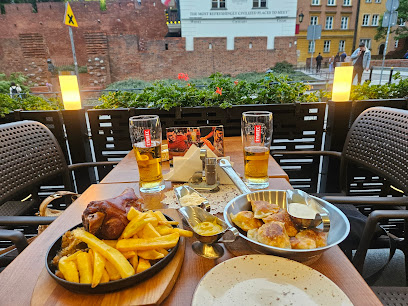
Bazyliszek Restaurant
Experience authentic Polish cuisine and barbecue delights at Bazyliszek Restaurant in Warsaw's enchanting Old Town.
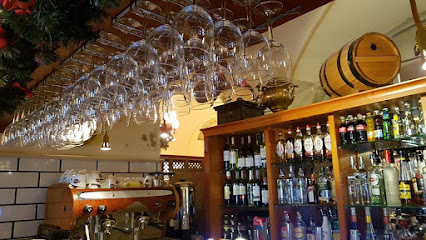
Stary Dom
Experience authentic Polish cuisine at Stary Dom in Mokotów – where tradition meets modern dining amidst vibrant cultural ambiance.
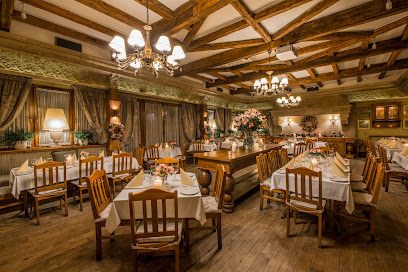
GOŚCINIEC Polskie Pierogi
Experience authentic Polish flavors at GOŚCINIEC Polskie Pierogi, where delicious dumplings meet warm hospitality in the heart of Warsaw.
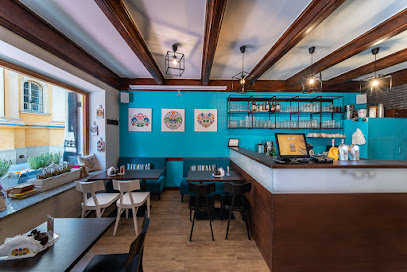
Zapiecek
Experience authentic Polish cuisine at Zapiecek - indulge in delicious pierogi and traditional dishes in the heart of Warsaw.
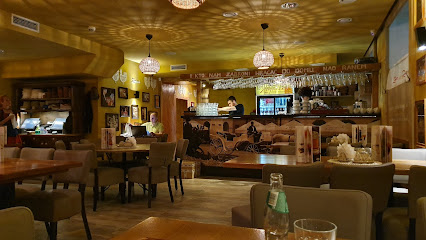
ČESKÁ beer restaurant
Discover delicious Czech cuisine and local beers at ČESKÁ Beer Restaurant in Warsaw's city center.
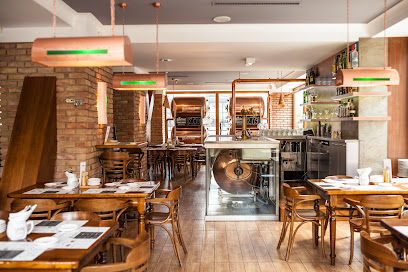
Beef and Pepper Steak house
Discover the best steak house in Warsaw with exquisite American and Polish cuisine at Beef and Pepper.
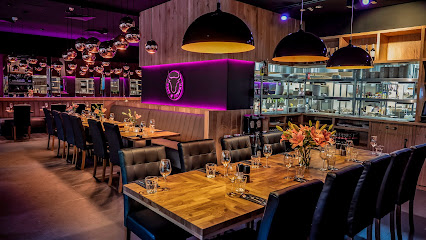
Restauracja Różana
Experience authentic Polish cuisine at Restauracja Różana in Warsaw's Mokotów district – where tradition meets modern elegance.
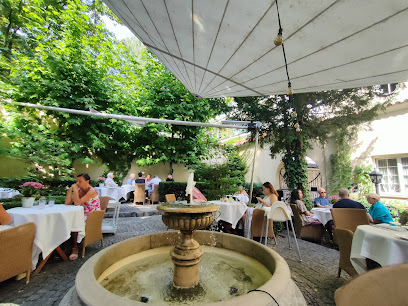
Czerwony Wieprz | restauracja polska Warszawa Śródmieście
Discover authentic Polish cuisine at Czerwony Wieprz in Warsaw - a perfect blend of tradition and taste.
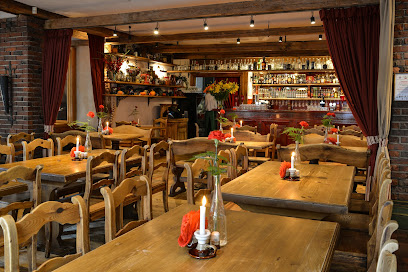
Sexy Duck
Savor authentic Italian cuisine at Sexy Duck in Warsaw - where tradition meets modern flair in every delightful dish.
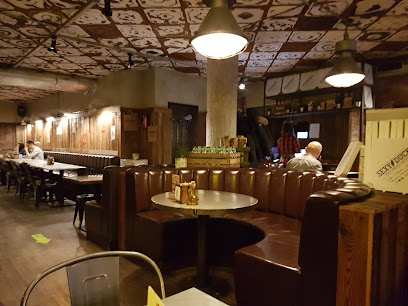
Tel Aviv | Poznańska 11 | Śniadania & Wieczory
Experience the vibrant flavors of Mediterranean cuisine at Tel Aviv in Warsaw – perfect for breakfast, lunch or dessert.
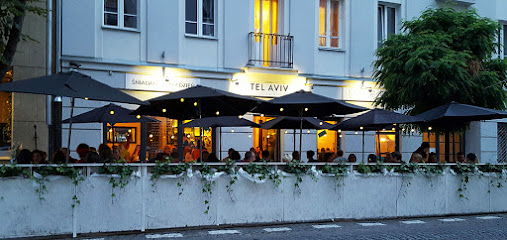
Soul Kitchen
Discover the heart of Polish cuisine at Soul Kitchen in Warsaw – where tradition meets modern taste in a cozy setting.
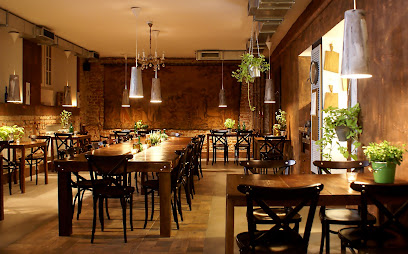
STIXX Bar & Grill
Discover culinary delights at STIXX Bar & Grill in Warsaw - where exquisite seafood meets premium steaks amidst live music and vibrant ambiance.
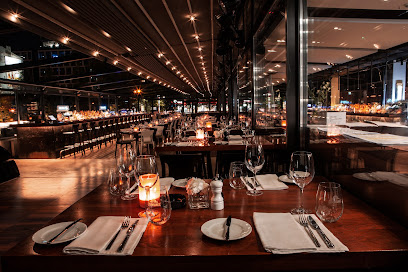
Specjały Regionalne
Discover authentic Polish flavors in the heart of Warsaw at Specjały Regionalne - a culinary journey awaits!
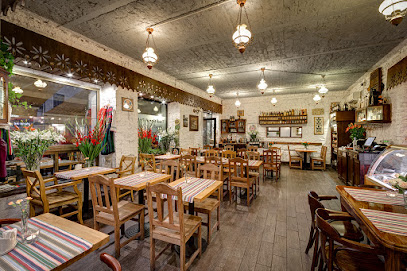
Markets, malls and hidden boutiques
Westfield Arkadia
Explore Westfield Arkadia, Warsaw's premier shopping mall with diverse retail, delightful dining, and family-friendly entertainment in the heart of the city.
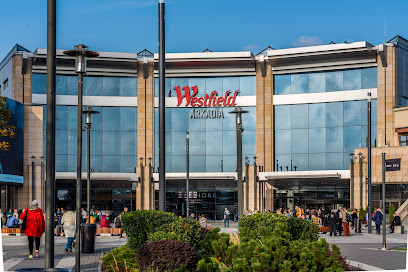
Uii im Wars Sawa Junior
Discover Uii im Wars Sawa Junior: A shopping paradise in the heart of Warsaw, blending local culture with diverse retail and dining experiences.
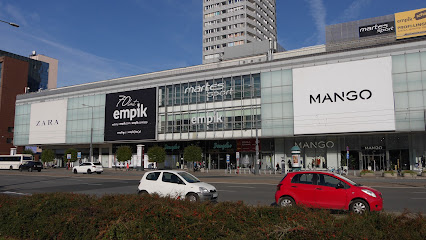
Fashion House Shopping Center Klif
Discover the ultimate shopping experience at Fashion House Shopping Center Klif in Warsaw, where style meets variety and culinary delights await.
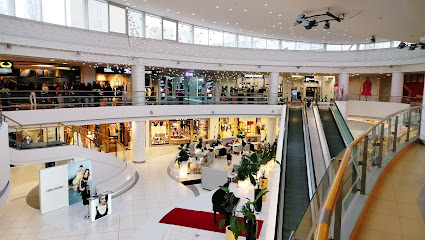
Flying Tiger Copenhagen
Explore Flying Tiger Copenhagen in Warsaw for a unique shopping experience filled with quirky gifts, home goods, and fun toys at affordable prices.
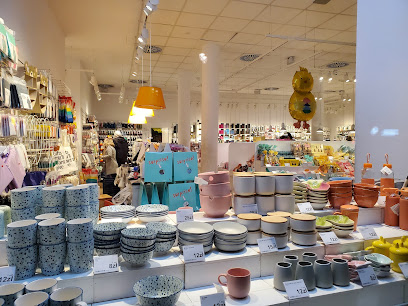
Mysia 3
Discover Mysia 3, Warsaw's premier shopping mall offering unique boutiques, dining, and a taste of Polish culture in the heart of the city.
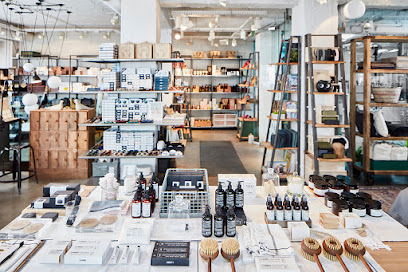
Louis Vuitton Warsaw
Explore the elegance of Louis Vuitton Warsaw – a luxury haven for fashion lovers in the heart of Poland's capital city.
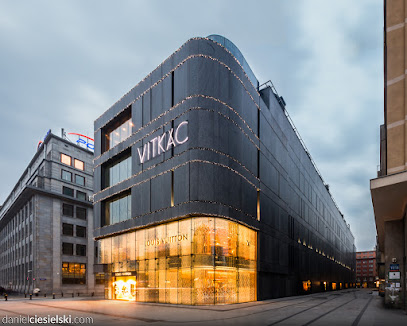
Grail Point
Discover the charm of contemporary fashion at Grail Point, Warsaw's ultimate clothing store, blending local flair with international trends.
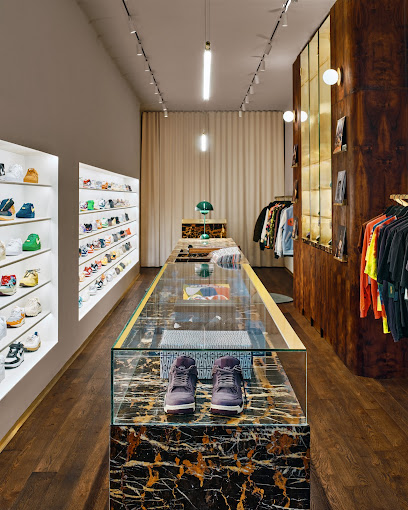
RISK made in warsaw
Explore the creative heart of Warsaw at RISK made in Warsaw, a boutique offering unique local and international treasures.
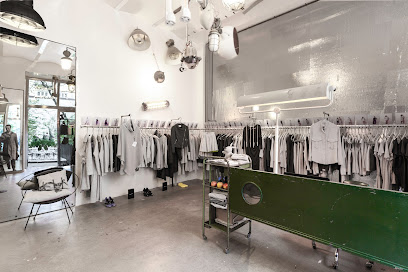
Fashion Street
Discover the ultimate shopping experience at Fashion Street in Warsaw, a stylish destination for fashion lovers and trendsetters alike.
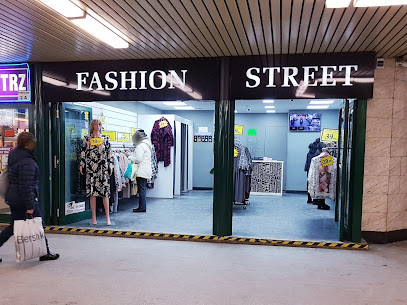
Balagan Flagship Store
Explore exquisite handcrafted handbags and shoes at Balagan Flagship Store in Warsaw, a true gem for fashion lovers.
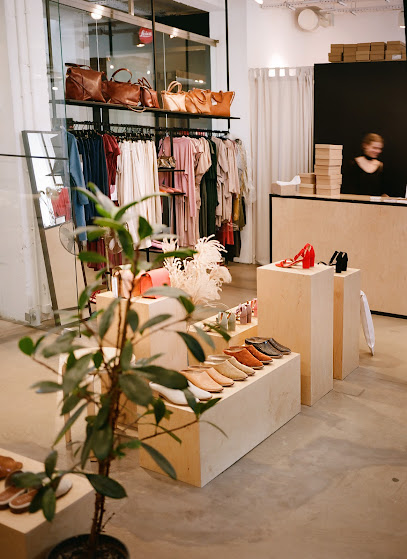
Bazar Miejski
Discover unique vintage treasures and local craftsmanship at Bazar Miejski, Warsaw's vibrant market for fashion and culture.
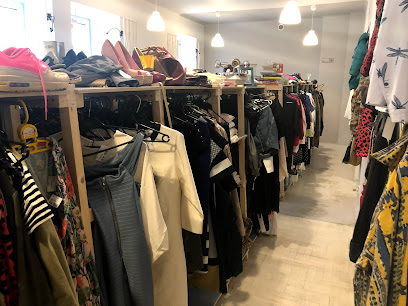
Urban Outfitters
Discover urban fashion and eclectic lifestyle products at Urban Outfitters in Warsaw, offering a unique shopping experience for every trendsetter.
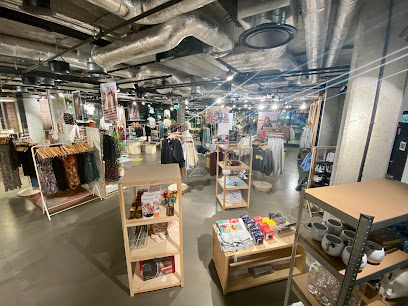
Mops Coffeeshop - Cannabis Store
Experience the vibrant atmosphere of Mops Coffeeshop, Warsaw's premier cannabis store, blending quality products with unique souvenirs.
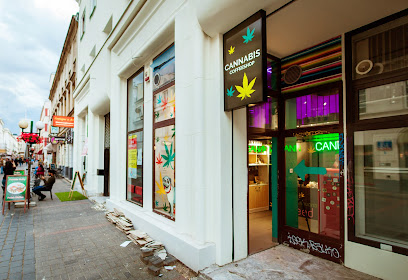
British Shop in Warsaw
Explore the unique offerings of the British Shop in Warsaw, where British culture meets Polish hospitality in a delightful shopping experience.
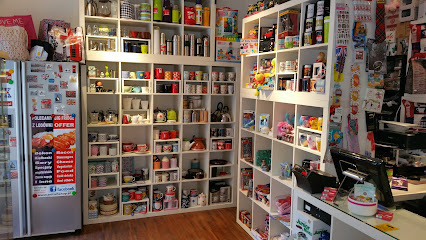
Folkstar Warszawa Śródmieście
Discover authentic Polish crafts and souvenirs at Folkstar Warszawa, a must-visit destination for tourists seeking unique treasures.
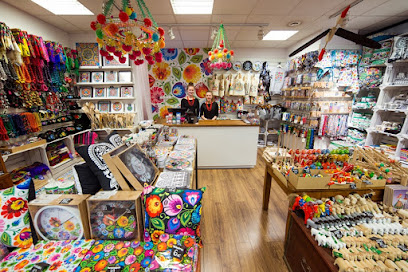
Essential bars & hidden hideouts
Coctail Bar Max & Dom Whisky
Discover the vibrant cocktail culture at Coctail Bar Max & Dom Whisky in Warsaw, where each drink is a masterpiece crafted for your enjoyment.
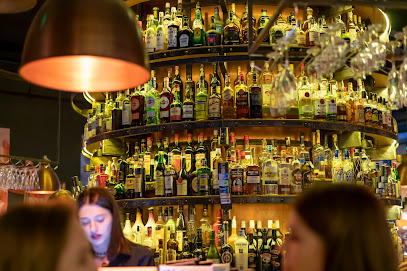
Panorama Sky Bar
Experience breathtaking views and exquisite cocktails at Panorama Sky Bar, Warsaw's premier destination for luxury nightlife.
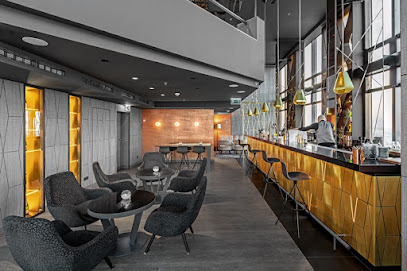
Kraken Rum Bar
Discover the essence of Warsaw nightlife at Kraken Rum Bar, where exquisite rum and delicious tapas create unforgettable experiences.
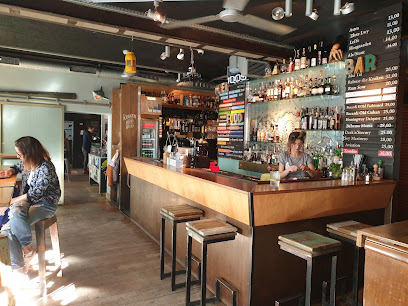
Czupito Shot Bar
Experience the vibrant nightlife of Warsaw at Czupito Shot Bar, renowned for its creative shots and lively atmosphere.
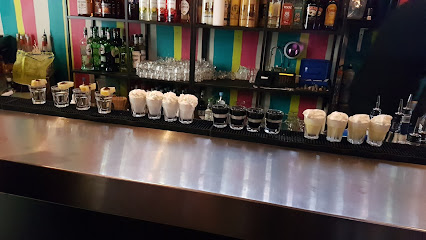
Kita Koguta
Discover the creative cocktail culture at Kita Koguta, Warsaw's vibrant bar offering unique drinks and a lively atmosphere.
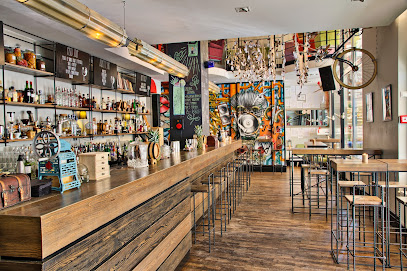
Zamieszanie - cocktail bar
Experience Warsaw's nightlife at Zamieszanie, a cocktail bar serving innovative drinks in a vibrant atmosphere, perfect for socializing and celebrating.
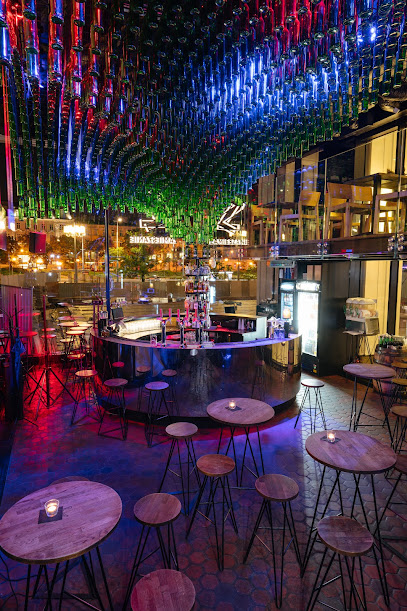
Steam Bar
Experience the best of Warsaw's nightlife at Steam Bar, a lively cocktail bar offering exquisite drinks, hookah, and delicious bites.
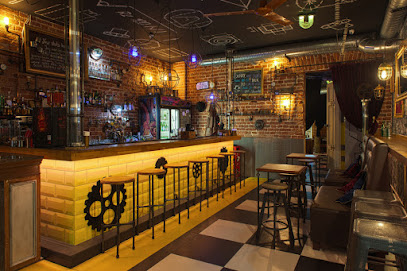
Woda Ognista
Experience the vibrant nightlife of Warsaw at Woda Ognista, where cocktails and Polish delicacies create a festive atmosphere.
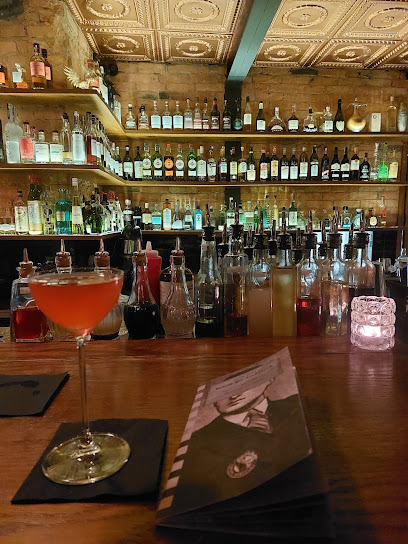
Veles Bar
Experience the vibrant nightlife of Warsaw at Veles Bar, where expertly crafted cocktails and a stylish atmosphere await.
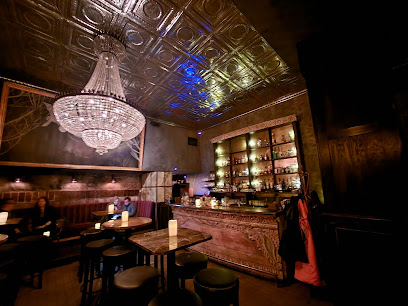
Klar Cocktail Bar
Experience the vibrant ambiance and exquisite cocktails of Klar Cocktail Bar in the heart of Warsaw, a culinary gem for every traveler.
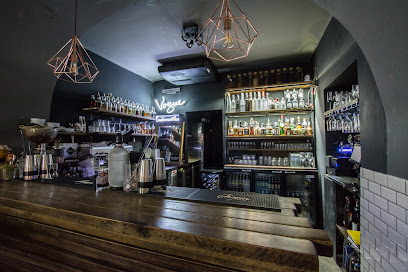
WarSaw Pub
Discover the lively WarSaw Pub in Warsaw, where craft beers, delicious food, and vibrant entertainment await every visitor.
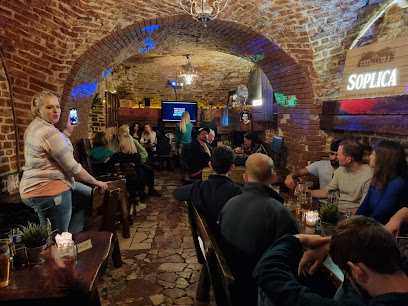
Podwale Bar and Books
Discover the perfect blend of literature and cocktails at Podwale Bar and Books in Warsaw, where every drink tells a story.
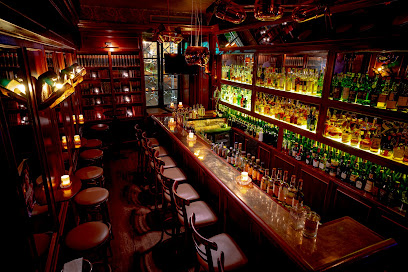
Ramona Bar
Ramona Bar in Warsaw: Experience expertly crafted cocktails and a vibrant nightlife atmosphere in the heart of the city.
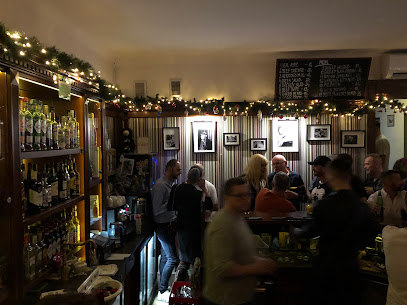
The Roots Cocktail Bar & More
Discover vibrant nightlife at The Roots Cocktail Bar in Warsaw, where innovative cocktails and a lively ambiance await.
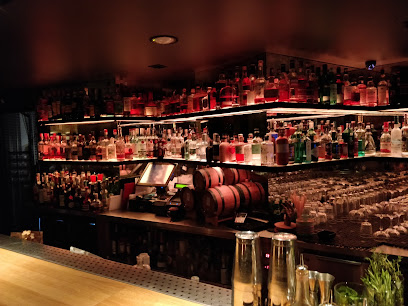
Local Phrases
-
- HelloCześć
[cheshch] - GoodbyeDo widzenia
[do veedzenya] - YesTak
[tak] - NoNie
[nye] - Please/You're welcomeProszę
[prosheh] - Thank youDziękuję
[jen-koo-yeh] - Excuse me/SorryPrzepraszam
[psheh-prah-sham] - How are you?Jak się masz?
[yak sheh mahsh] - Fine. And you?Dobrze. A ty?
[dob-zheh. ah ti] - Do you speak English?Czy mówisz po angielsku?
[chi moovish poh ahn-gyehl-skoo] - I don't understandNie rozumiem
[nye roh-zoo-myem]
- HelloCześć
-
- I'd like to see the menu, pleaseChciałbym zobaczyć menu, proszę
[h-chyal-bim zoh-bah-chich meh-noo, pro-sheh] - I don't eat meatNie jem mięsa
[nye yem myen-sa] - Cheers!Na zdrowie!
[na zdrov-yeh] - I would like to pay, pleaseChciałbym zapłacić, proszę
[h-chyal-bim zah-pla-cheech, pro-sheh]
- I'd like to see the menu, pleaseChciałbym zobaczyć menu, proszę
-
- Help!Pomoc!
[poh-mots] - Go away!Idź sobie!
[eedzh soh-byeh] - Call the Police!Zadzwoń po policję!
[zadzvohn poh po-li-ts-ye] - Call a doctor!Zadzwoń po lekarza!
[zadzvohn poh leh-kar-zah] - I'm lostZgubiłem się
[zgoo-bi-wem sheh] - I'm illJestem chory
[yeh-stem hoh-ri]
- Help!Pomoc!
-
- I'd like to buy...Chciałbym kupić...
[h-chyal-bim koo-peech] - I'm just lookingTylko się rozglądam
[t-ko sheh rohz-gwah-dam] - How much is it?Ile to kosztuje?
[ee-leh to kosh-too-yeh] - That's too expensiveTo za drogo
[toh zah droh-goh] - Can you lower the price?Czy możesz obniżyć cenę?
[chi mo-zhesh o-bnee-zhich tseh-neh]
- I'd like to buy...Chciałbym kupić...
-
- What time is it?Która jest godzina?
[k-too-rah yest goh-dzee-nah] - It's one o'clockJest pierwsza
[yest pyer-vsheh] - Half past (10)Pół do dziesiątej
[poow doh dzye-shon-tey] - MorningRano
[rah-no] - AfternoonPopołudnie
[poh-po-woo-dnyeh] - EveningWieczór
[vyeh-choor] - YesterdayWczoraj
[v-cho-rye] - TodayDziś
[jeesh] - TomorrowJutro
[yoo-tro] - 1Jeden
[yeh-den] - 2Dwa
[dvah] - 3Trzy
[tshih] - 4Cztery
[ch-teh-ri] - 5Pięć
[pyench] - 6Sześć
[sheshch] - 7Siedem
[shyeh-dem] - 8Osiem
[oh-shem] - 9Dziewięć
[dzyev-niehch] - 10Dziesięć
[dzye-shon-tyech]
- What time is it?Która jest godzina?
-
- Where's a/the...?Gdzie jest...
[gdzyeh yest] - What's the address?Jaki jest adres?
[yah-ki yest ah-dres] - Can you show me (on the map)?Czy możesz mi pokazać (na mapie)?
[chi mo-zhesh mee poh-kah-zats (nah ma-pee-eh)] - When's the next (bus)?Kiedy odjeżdża następny (autobus)?
[kyeh-dih oh-dezh-jah nah-stem-ny aut-o-boos] - A ticket (to ....)Bilet (do ...)
[bee-let (doh)]
- Where's a/the...?Gdzie jest...
History of Warsaw
-
Warsaw, known as Warszawa in Polish, traces its origins back to the late 13th century. It was initially a small fishing village on the banks of the Vistula River. By 1596, it had grown significantly and became the capital of Poland, replacing Kraków. This strategic location helped it evolve into a prominent economic and cultural center.
-
One of the most significant events in Warsaw's history is the Warsaw Uprising of 1944. The uprising was a major World War II operation by the Polish resistance Home Army to liberate Warsaw from German occupation. It began on August 1, 1944, and lasted for 63 days. Despite initial successes, the uprising was brutally suppressed by the Nazis, resulting in significant casualties and the near-total destruction of the city.
-
After World War II, Warsaw was left in ruins, with approximately 85% of its buildings destroyed. The city's reconstruction was a massive effort that aimed to restore its pre-war appearance. This included the meticulous rebuilding of the Old Town, which was declared a UNESCO World Heritage Site in 1980. The reconstruction effort is considered one of the most remarkable achievements in urban restoration.
-
The Royal Castle in Warsaw is a symbol of Poland's rich history and resilience. Originally serving as the official residence of Polish monarchs, the castle was destroyed by German forces during World War II. It was meticulously rebuilt in the 1970s using original plans and surviving fragments. Today, the Royal Castle stands as a testament to the city's enduring spirit and is a major tourist attraction.
-
The Warsaw Ghetto was the largest Jewish ghetto in Nazi-occupied Europe during World War II. Established in 1940, it housed over 400,000 Jews in appalling conditions. In 1943, the Warsaw Ghetto Uprising occurred as a resistance effort against the Nazis. Though ultimately crushed, it remains a symbol of courage and defiance. The area is now marked by several memorials, including the Monument to the Ghetto Heroes.
-
In recent decades, Warsaw has experienced a cultural renaissance. The city is home to numerous theaters, galleries, and music venues. The Warsaw Philharmonic, established in 1901, is one of the city's most prestigious cultural institutions. Additionally, the annual Warsaw Film Festival and Chopin Piano Competition attract international artists and audiences, solidifying Warsaw's status as a vibrant cultural hub.
-
Today, Warsaw is a bustling metropolis that seamlessly blends its historical heritage with modernity. The city boasts a dynamic economy, with numerous skyscrapers dotting its skyline. Key landmarks include the Palace of Culture and Science, the tallest building in Poland, and the Warsaw Spire. The city's public spaces, green parks, and vibrant nightlife make it a lively and attractive destination for tourists and residents alike.
Warsaw Essentials
-
Warsaw, Poland's capital, is served by two main airports: Warsaw Chopin Airport (WAW), located about 10 kilometers from the city center, and Warsaw Modlin Airport (WMI), situated about 40 kilometers north of the city. Chopin Airport is the primary international gateway, with numerous flights from major global destinations. Travelers from European cities can also reach Warsaw by train, with services operated by PKP Intercity and international connections via EuroCity (EC) trains. Additionally, several international bus lines connect Warsaw with neighboring countries.
-
Warsaw boasts an extensive and efficient public transportation system, including buses, trams, and a metro network operated by ZTM. Tickets are valid on all forms of public transport and can be purchased at ticket machines, kiosks, or via mobile apps. For those preferring taxis, it is recommended to use licensed companies such as Ele Taxi or iTaxi. Ride-sharing services like Uber and Bolt are also widely available. For a more local experience, consider renting a Veturilo bike from one of the many bike-sharing stations around the city.
-
The official currency in Poland is the Polish Zloty (PLN). Credit and debit cards are widely accepted in most establishments, including restaurants, shops, and hotels. ATMs are plentiful throughout the city for cash withdrawals. It is advisable to carry some cash for smaller purchases or in places where card payments may not be accepted, such as local markets or small cafes.
-
Warsaw is generally a safe city for tourists. However, standard precautions should be taken to avoid petty crimes such as pickpocketing, particularly in crowded areas like the Old Town, public transport, and major tourist attractions. The Praga district, while undergoing revitalization, can still be less safe at night. It's advisable to stay vigilant and avoid poorly lit or deserted areas after dark.
-
In case of emergency, dial 112, the European emergency number, which connects you to police, medical, or fire services. Warsaw has several hospitals and medical facilities, including public and private options. Pharmacies are widely available, with some operating 24/7. For minor health issues, over-the-counter medications can be purchased at these pharmacies.
-
Fashion: Do dress smart-casual, especially when dining out or visiting theaters. Avoid overly casual attire in these settings. Religion: Do respect religious customs, especially in churches. Dress modestly and avoid loud behavior. Public Transport: Do validate your ticket immediately after boarding. Don't forget to offer your seat to elderly passengers. Greetings: Do greet people with a firm handshake. A polite nod is also acceptable. Eating & Drinking: Do try local dishes like pierogi and bigos. Don't clink glasses when toasting, as it is considered impolite.
-
To experience Warsaw like a local, visit the vibrant neighborhoods of Żoliborz and Powiśle, known for their bohemian atmosphere, cafes, and local markets. Enjoy a leisurely walk along the Vistula River boulevards, especially in summer when they are bustling with activities. Attend a local event or concert at the Palace of Culture and Science or the National Stadium. For a unique culinary experience, explore the Hala Koszyki or Hala Gwardii food halls, offering a variety of Polish and international cuisine.
Trending Landmark in Warsaw
-
Łazienki Królewskie
-
Palace of Culture and Science
-
The Royal Castle in Warsaw
-
Palace on the Isle
-
Observation deck
-
Frédéric Chopin Monument
-
Warsaw Barbican
-
Tomb of the Unknown Soldier
-
Nicolaus Copernicus Monument
-
Warsaw Uprising Monument
-
Museum of Warsaw
-
Castle Square, Warsaw
-
The Tin-Roofed Palace
-
Royal Route
-
Monument to the Heroes of Warsaw
Nearby Cities to Warsaw
-
Things To Do in Radom
-
Things To Do in Lodz
-
Things To Do in Lublin
-
Things To Do in Kielce
-
Things To Do in Olsztyn
-
Things To Do in Bialystok
-
Things To Do in Torun
-
Things To Do in Czestochowa
-
Things To Do in Bydgoszcz
-
Things To Do in Elblag
-
Things To Do in Suwalki
-
Things To Do in Tarnow
-
Things To Do in Krakow
-
Things To Do in Rzeszow
-
Things To Do in Gliwice

















